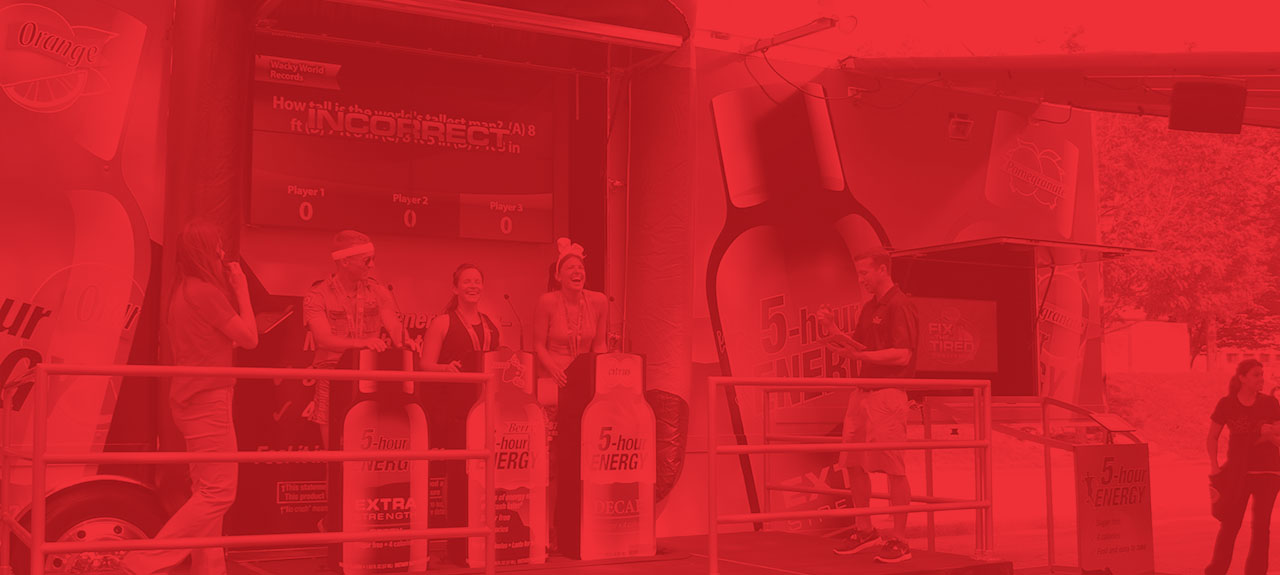As marketers, we know peer-to-peer endorsements can be key in communicating a product or service’s key benefits and transforming from awareness to consideration to purchase, If your product or service has a target from ages 17 to 24, consider an on-campus activation that turns students into your brand ambassadors.
College students are hungry for knowledge and opportunities to help build their resumes and gain experience that will set them apart from their peers. Depending on your company and your objectives, employing college students as interns or campus ambassadors could be right for you.
Finding great candidates is not difficult, but how do you prep and leverage them best after the hire? These considerations for training and management will help you get the most out your student staff and help students have a rewarding and marketable experience.

Train Them
Don’t simply email them a PowerPoint of things that they will gloss over. These college ambassadors are going to be the face of your brand! They will be the first touch point with new consumers – and that will influence how that consumer views your brand or if they buy your product. Students have a lot on their plates and could use a little love via a a face-to-face training. It will show that you take your brand seriously and so should they. Develop an onboarding process that includes a company overview and history; a ‘day in the life’ overview that will set expectations for the work they will be doing; and introductions to your team. Providing a company overview and corporate history makes them feel a part of the team. You don’t need to divulge all of your company’s secrets, but giving them the inside scoop makes them buy into the brand a little more. And it buys you some insurance that they truly understand both the brand and the task at hand.
Pay Them
For a variety of reasons, most of today’s internships are paid. To stay competitive and hire the best people, it’s worth the investment to pay them. We are big believers in the saying, “you get what you pay for”. Remember, there are many companies out there hiring. You can structure students’ pay as a monthly stipend, by the hour (must be minimum wage) or based on projects completed. The structure of their pay can also be dependent on the type of work they do – intern vs campus representative/ambassador. One of the requirements for an internship is that its primary purpose is learning and education for the intern. There are now Federal guidelines you should be aware of if you are hiring. Check out the laws from the Department of Labor before you make any hires. As you structure your program and determine the work that the student will complete, safeguard yourself by reviewing those guidelines extensively.

Set Clear Expectations
This could be the first ‘job’ for many students. Establishing clear expectations up front will save you many headaches down the line. Provide clear and concise feedback, but remember to go a little easy. As students, they aren’t yet versed in the corporate world. Topics such as email etiquette and office conduct are worth an upfront conversation to save you some potential uncomfortable discussions in the future.
Regarding communications with your collegiate staff – keep in mind while we are much immersed in the world of email, most of them don’t sit at a desk and may not have constant access to email or instantaneous responses. You don’t have to convert your communication to all texting, but you do need to set the expectation up front that they check their email at least once per day, or at intervals you deem necessary. If they are working on a project, set a clear due date in advance. That way, if they have any conflicts, they can adjust their schedule to complete it given the advance notice. If you are clear on your expectations, it will make those, “My project will be late because I have a test” conversations a little easier. (Not non-existent, just easier). We like to assign deadlines, while also getting status updates and progress checks along the way so that way we aren’t left hanging if their work isn’t on time.
Assign Them a Mentor
They are there to learn, so take some time to teach them. Have someone on staff who provides guidance for the intern. If they don’t have someone to bounce ideas off of, how will they learn your brand and your expectations? Worse, they may make the wrong decisions on their own if you don’t have time to offer the feedback. Having someone that they can connect with weekly will keep them on track. Offering regular feedback will help all of you stay more productive. The best mentors take the time to talk, but also take the time to listen. You can learn a lot about your own brand by listening to the feedback and perception of these students who are PART of the target and are interacting WITH the target every day. While not all of their ideas may align with your goals, hearing their perspective is always enlightening.
Let Them Do Real Work
No one likes ‘busy work’ – giving them only work that’s not building their skill set will not benefit either of you. They will feel like they are not contributing and you aren’t maximizing their potential. They need this opportunity to gain some real world experience, and if you’ve hired them, you obviously need them. If you’ve trained them well, your expectations are clear, and you have someone providing regular feedback, letting them tackle some real work will be rewarding for both of you.
To learn more about how to enhance your collegiate staffing program, contact Ivy at ivym@theswitch.us.














